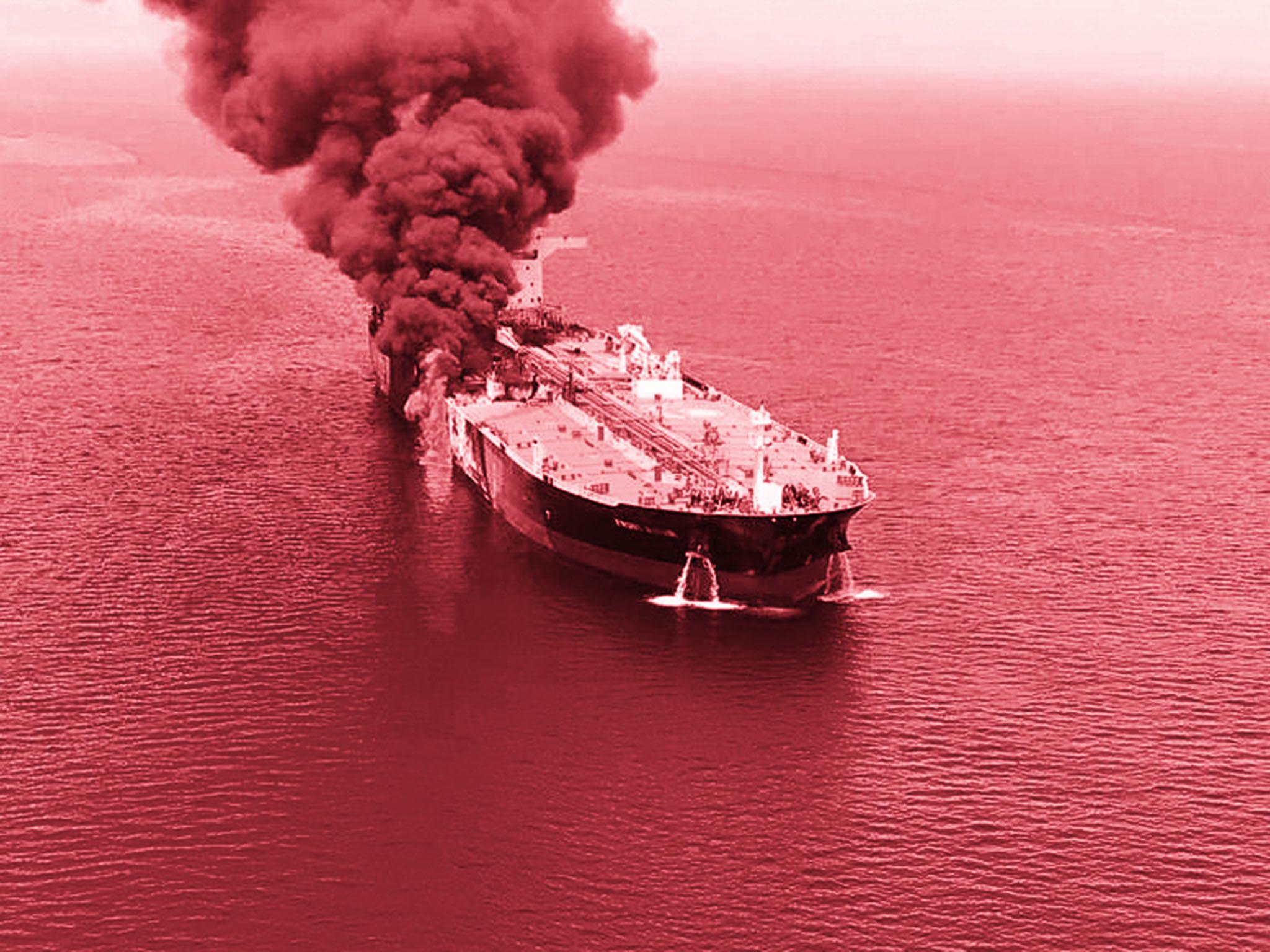Gulf of Oman: What we know so far about Iran being blamed for oil tanker attacks

Your support helps us to tell the story
From reproductive rights to climate change to Big Tech, The Independent is on the ground when the story is developing. Whether it's investigating the financials of Elon Musk's pro-Trump PAC or producing our latest documentary, 'The A Word', which shines a light on the American women fighting for reproductive rights, we know how important it is to parse out the facts from the messaging.
At such a critical moment in US history, we need reporters on the ground. Your donation allows us to keep sending journalists to speak to both sides of the story.
The Independent is trusted by Americans across the entire political spectrum. And unlike many other quality news outlets, we choose not to lock Americans out of our reporting and analysis with paywalls. We believe quality journalism should be available to everyone, paid for by those who can afford it.
Your support makes all the difference.Tensions in the Middle East are on the rise once again after Donald Trump‘s administration blamed Iran for attacks on several oil tankers in the Gulf of Oman, a vital oil shipping lane.
At least six tankers have been damaged in suspicious attacks over the last month, causing oil prices to soar and increasing fears of a major conflict.
In May, the US sent an aircraft carrier strike group to the region, along with four nuclear-capable B-52 bombers, in response to what it said were threats from Iran.
What has happened so far
Two oil tankers were damaged in attacks in the Gulf of Oman last week.
Japan’s Kokuka Courageous and Norway’s Front Altair were hit on Thursday after similar blasts in May struck four ships, including two Saudi oil tankers, off the coast of the United Arab Emirates.
The Kokuka Courageous’s 21 crew members were rescued and returned to the vessel by the US Navy’s Bahrain-based Fifth Fleet, while the crew of the Front Altair were picked up by Iranian boats and departed Iran from Bandar Abbas airport to Dubai International Airport on Saturday, according to the ship’s operator, Frontline.
After the attacks on 12 May, in which a Norwegian-registered tanker was also damaged, the UAE launched an investigation in cooperation with the US, Saudi Arabia, Norway and France.
The UAE said its probe showed a state actor was behind last month’s operation and naval mines were most likely used, but it did not name a country.
Who has blamed Iran for the attacks?
Britain, the US and Saudi Arabia have blamed Iran for both last week’s and last month’s attacks, which Tehran has strongly denied.
Washington said limpet mines were used to attack the two tankers, and produced black-and-white footage it claimed showed Iranian Revolutionary Guards (IRGC) troops removing an unexploded mine from the hull of the Kokuka Courageous.
The administration was implying Tehran wanted to remove any evidence which could link it to the attack, as weapons experts would have been able to examine the mine for clues about its origin.
The US military also accused the IRGC of attempting to shoot down a US drone which had been surveilling the tankers during the attacks.
Footage 'shows Iran boat removing limpet mine from tanker', US military says Jeremy Hunt, Britain’s foreign secretary, joined the US in blaming Iran for the attack and warned of the “great risk” of a drift to war with Tehran.
He said Britain was “almost certain” Iran was behind the attacks and said London did not believe anyone else could have conducted them.
Jeremy Hunt says UK 'almost certain' Iran to blame for oil tanker attacks Mike Pompeo, the US secretary of state, has been working to convince other world leaders Iran was behind the attacks. Mr Pompeo said the US evidence was “unmistakable” and said “the world needs to unite” during appearances on American news shows on Sunday.
He said further US military deployment to the region was one of the options Mr Trump may consider to keep oil tankers moving through the area.
Trump blames Iran over oil tanker attacks However, several European foreign ministers have said they are unconvinced by the US allegations and called for an independent UN investigation.
Heiko Maas, the German foreign minister, said the EU states “continue to gather information” while Dutch foreign minister Stef Blok said the Netherlands was “interested in any clarifications that can be made available”
What has Iran said in response?
Iran has denied being involved in the attacks and accused the US of promoting an “Iranophobic” campaign.
However, Tehran has previously used mines against oil tankers in 1987 and 1988 in the “Tanker War”, during which the US Navy escorted ships through the region.
Mike Pompeo: 'It is the assessment of the United States government that the Islamic Republic of Iran is responsible for the attacks that occurred in the Gulf of Oman' Tensions have been further stoked since US President Donald Trump withdrew from the 2015 nuclear deal with Iran last year.
Under the deal, Tehran agreed to limit its enrichment of uranium for the lifting of crippling sanctions, but has now threatened to resume enriching uranium closer to weapons-grade levels if European nations do not renew the deal by 7 July.
Join our commenting forum
Join thought-provoking conversations, follow other Independent readers and see their replies
Comments